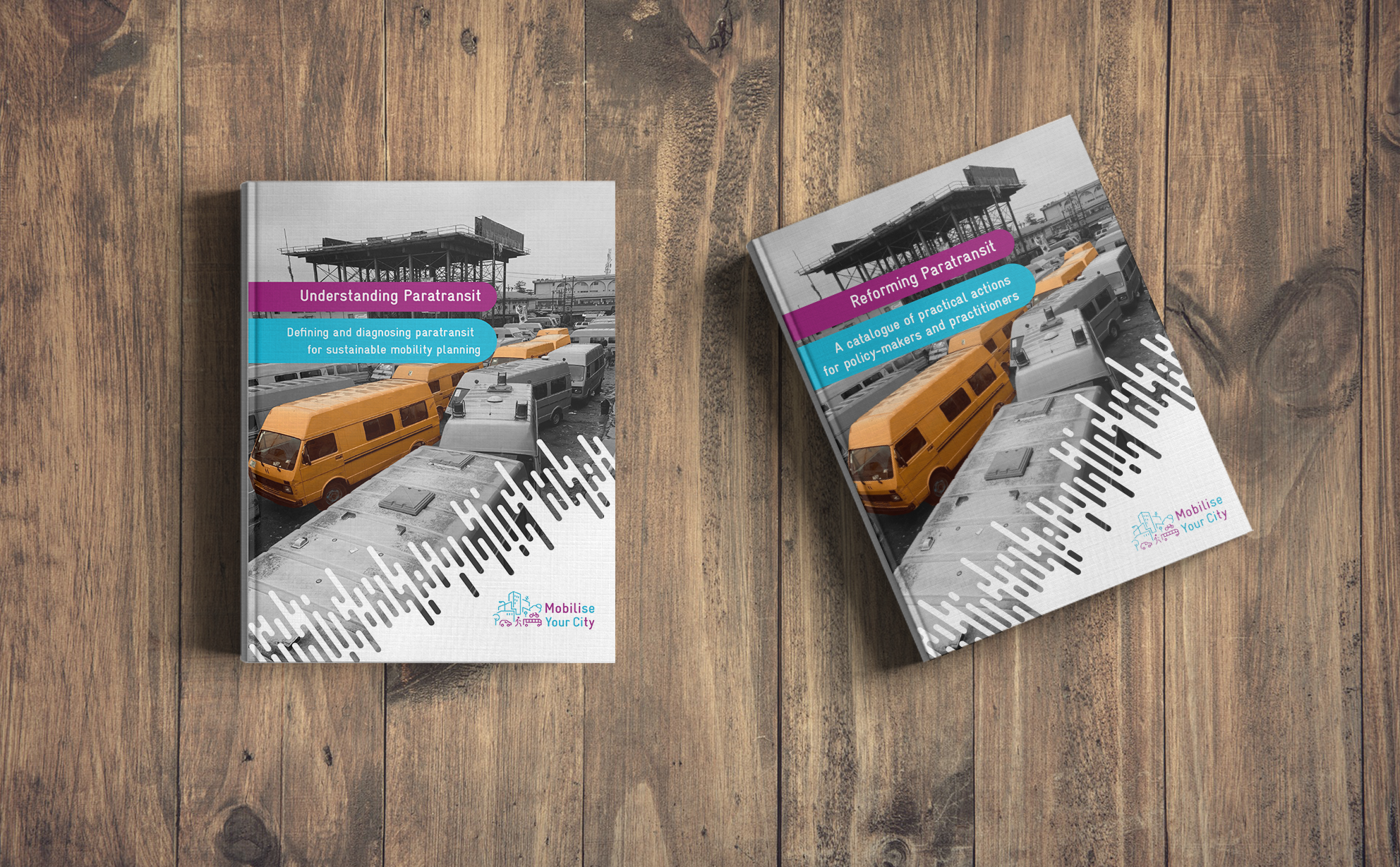Hands-on Paratransit toolkit equips practitioners and decision makers with 50 measures to reform the sector

MobiliseYourCity just published its Paratransit Toolkit to support practitioners and decision-makers in reforming this sector. Developed with our African Community of Practice and our partners, the toolkit includes a methodology to learn how to conduct an in-depth diagnosis of the paratransit sector and a catalogue compiling 50 practical measures to reform the sector. Download the Toolkit (EN, FR, ES).
But why paratransit?
A surprising gap
Informal transport is a phenomenon that can hardly be ignored in the Global South. Many cities in these geographies have limited formal public transport services, and others do not have any form of formal public transportation at all. Instead, many citizens rely on informal forms of collective transport to fulfil their transportation needs. These services range from high-capacity buses to single-passenger vehicles, such as moto taxis or three-wheelers.
This informal public transport, or paratransit, is highly beneficial to the poorest segments of the population by acting as an important source of employment to low-skill workers and by providing them with affordable and accessible transport services, thus enabling their participation in the economic, social and cultural life.
On the other hand, it is a major source of GHG emissions and air pollution, it suffers from very low quality of service and it represents a major safety hazard to road users.
However, until now informal transport has remained largely unexplored in the international climate and development arenas.
Missing data
While there now seems to be a growing consensus around the centrality of paratransit in contributing not only to climate change mitigation but also to sustainability in all its dimensions, what is missing, however, is a clear and precise understanding of the scope of the problem and the potential of the sector to reduce GHG emissions. Informality is elusive by nature, and so is the current data landscape: fragmented, incomplete, although slowly improving.
Growing expertise
Experience in the modernization of the sector is however constantly growing through concerted action between local and national authorities in the Global South and international development organizations. This experience is increasingly showing that decarbonizing informal transport through electrification can hardly be achieved within the existing structures and business models, characterized by an oversupply of vehicles, fragmentation, and a lack of financial resources necessary to invest in modern and clean technologies. In other words, professionalization and rationalization of the sector go hand in hand with its modernization and decarbonization.
Growing demand
The first mobility plans completed by MobiliseYourCity member cities in Africa confirmed the importance of paratransit to ensure a fair transition to net-zero urban transport. The Partnership has however identified an implementation gap on this topic and decided to provide additional support to encourage reforms in the sector.
The newly published MobiliseYourCity Paratransit Toolkit provides decision-makers and practitioners with hands-on guidance to understand the state of paratransit in their city. It offers them a large set of actions to start addressing the issues of the sector, from the most fundamental and accessible actions to more ambitious measures.
To go further on this topic:
- Download the toolkit (EN, FR, ES).
- Watch the launch webinar
- Watch our side event to the UN Sustainable Transport Conference